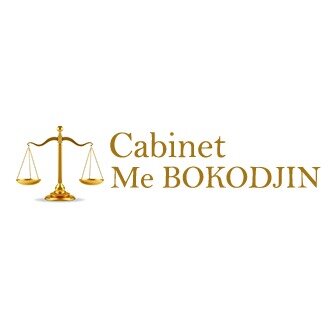Best Oil, Gas & Energy Lawyers in Lomé
Share your needs with us, get contacted by law firms.
Free. Takes 2 min.
List of the best lawyers in Lomé, Togo
About Oil, Gas & Energy Law in Lomé, Togo
Lomé, the capital city of Togo, is at the heart of the country's oil, gas, and energy sector. Togo has shown significant potential in energy development, characterized by ongoing exploration activities, efforts towards energy diversification, and infrastructural expansion in the energy sector. The government of Togo has implemented a strategic roadmap for energy sector improvement, focusing on adopting transparent regulatory frameworks, enhancing energy efficiency, and increasing reliance on renewable energy sources. As a result, legal nuances in oil, gas, and energy tend to be dynamic, influenced by policies that aim to attract investment while managing environmental and social impacts.
Why You May Need a Lawyer
Legal expertise is crucial in navigating the complexities of oil, gas, and energy sectors in Lomé, Togo. You may require a lawyer in this field if you are:
- Entering into contracts for exploration, drilling, or energy supply.
- Facing regulatory compliance issues with local energy laws.
- Dealing with disputes arising out of commercial agreements in the energy sector.
- Engaging in transactions involving the transfer or acquisition of oil and gas assets.
- Involved in environmental impact assessments and requiring guidance on compliance with environmental laws.
- Seeking to understand the local taxation implications for energy sector investments.
- Pursuing projects related to renewable energy development.
Local Laws Overview
Togo's legal framework for oil, gas, and energy involves several components:
- The Hydrocarbons Code: Governs the exploration and production of oil and gas. Licensing and operational requirements are central to this code.
- The Electricity Code: Regulates the generation, distribution, and transmission of electricity, emphasizing renewable energy integration.
- Environmental laws: Include mandatory Environmental Impact Assessments (EIA) for energy projects, with compliance monitored by the Ministry of Environment.
- Investment codes: Provide incentives aimed at attracting investments in the energy sector, including tax benefits for renewable energy ventures.
- Customary and land rights: Crucial when dealing with land acquisition for energy infrastructure development, as local communities may hold traditional land rights.
Frequently Asked Questions
What are the main regulatory bodies for oil, gas, and energy in Togo?
The Ministry of Mines and Energy is the primary regulatory authority overseeing oil, gas, and energy activities in Togo.
Is renewable energy development a priority in Togo?
Yes, Togo is prioritizing renewable energy as part of its strategic energy development plan, aiming to increase energy access and sustainability.
What are the common types of energy projects in Lomé?
Common projects include solar energy installations, natural gas exploration, electricity generation, and construction of energy infrastructure.
How does Togo address environmental concerns related to energy development?
Environmental Impact Assessments (EIAs) are mandatory for all significant energy projects to ensure environmental protection measures are in place.
Are there tax incentives for investing in the energy sector in Togo?
Yes, the government offers various tax incentives, especially for projects related to renewable energy, to encourage sector investment.
What is the process for obtaining an exploration license in Togo?
Obtaining an exploration license involves application submission to the Ministry of Mines and Energy, followed by a review process to assess compliance with the regulatory framework.
What role do local communities play in energy projects?
Local communities, often holding customary land rights, are stakeholders in energy projects, and projects typically involve consultations and negotiations with these communities.
How are energy-related disputes resolved in Togo?
Disputes are generally resolved through arbitration or legal proceedings, potentially involving the Ministry of Mines and Energy for technical resolutions.
Can foreign investors participate in Togo's energy sector?
Foreign investment is encouraged, with specific legal agreements and partnership models available to safeguard investor interests.
What legal challenges are common in the oil and gas sector in Lomé?
Typical challenges include contract negotiation disputes, regulatory compliance difficulties, and balancing resource development with environmental conservation.
Additional Resources
For further assistance, consider reaching out to the following organizations:
- Ministry of Mines and Energy of Togo: Provides official guidelines and applications related to energy licensing and regulation.
- Togo Chamber of Commerce and Industry: Facilitates investment opportunities and business-friendly resources.
- Environmental Compliance Authorities: Guide for complying with environmental regulations and standards.
- Local legal firms specializing in energy law: Offer expert advice on navigating legalities in the oil, gas, and energy sector.
Next Steps
If you need legal assistance in the oil, gas, and energy sectors in Lomé, Togo, consider taking the following steps:
- Identify the specific area of legal assistance you require, such as contract negotiation, compliance, or dispute resolution.
- Consult with a local lawyer specializing in oil, gas, and energy law for tailored advice and representation.
- Engage with relevant regulatory bodies for guidance and to ensure compliance with all necessary regulations and procedures.
- Investigate additional support from business development organizations or investment bodies in Togo.
Lawzana helps you find the best lawyers and law firms in Lomé through a curated and pre-screened list of qualified legal professionals. Our platform offers rankings and detailed profiles of attorneys and law firms, allowing you to compare based on practice areas, including Oil, Gas & Energy, experience, and client feedback.
Each profile includes a description of the firm's areas of practice, client reviews, team members and partners, year of establishment, spoken languages, office locations, contact information, social media presence, and any published articles or resources. Most firms on our platform speak English and are experienced in both local and international legal matters.
Get a quote from top-rated law firms in Lomé, Togo — quickly, securely, and without unnecessary hassle.
Disclaimer:
The information provided on this page is for general informational purposes only and does not constitute legal advice. While we strive to ensure the accuracy and relevance of the content, legal information may change over time, and interpretations of the law can vary. You should always consult with a qualified legal professional for advice specific to your situation.
We disclaim all liability for actions taken or not taken based on the content of this page. If you believe any information is incorrect or outdated, please contact us, and we will review and update it where appropriate.











